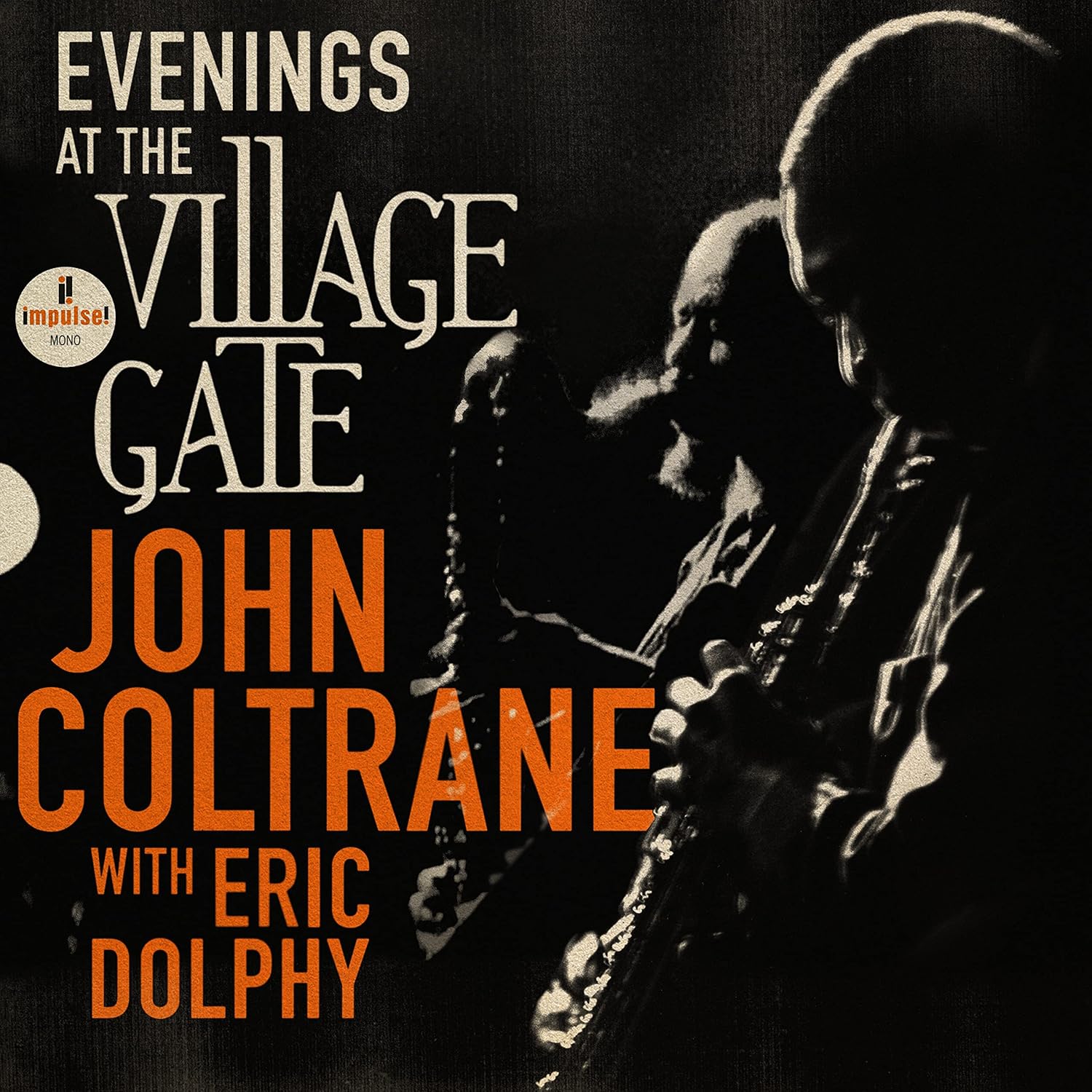
Evenings At The Village Gate: John Coltrane with Eric Dolphy
FREE Shipping
Evenings At The Village Gate: John Coltrane with Eric Dolphy
- Brand: Unbranded

Description
You can change your choices at any time by visiting Cookie preferences, as described in the Cookie notice. But the beauty of their interplay was tightly wound in the tension of two self-directed men with irrepressible appetites for innovation. The album is culled from a couple of nights during an August and early September residency at the Village Gate, a since-shuttered Greenwich Village venue. All image and audio content is used by permission of the copyright holders or their agents, and/or according to fair dealing as per the UK Copyright, Designs and Patents Act 1988.
The original purpose of this recording was to asses the sound system of the newly opened Village Gate club. Of course Coltrane makes My Favourite Things something beautiful but what makes this recording so very special is Eric Dolphy. Squabbles about sound quality, and comparisons between various iterations of his quartet, are never convincing: John Coltrane cared about change, not perfection. Part of that rare uncertain quality was down to the presence of Dolphy, who Coltrane had first befriended in New York in 1959.Just as Coltrane did for Miles Davis during their final shows together, Dolphy widened Coltrane’s canvas. Scores of Coltrane heads weaned themselves on the impressive fidelity of “Live” at the Village Vanguard and 1964’s Live at Birdland, both of which were captured with extreme stereo know-how by Rudy Van Gelder.
His experimentation signaled something both impractical and studied, a breakdown of big-band largesse into the endless permutations that opened to jazz musicians as ’50s conventions fractured into parallel universes of sound. Workman says in the liner notes that Coltrane put his full trust in Dolphy, entrusted him with the solo, and listened intently to Dolphy's various ideas and tones from the side of the stage. His solos and ‘Impressions’ and ‘Favorite Things’ underlinine what an important component of Coltrane’s quartet/quintet he was becoming.This recording represents a very special moment in John Coltrane's journey—the summer of 1961—when his signature, ecstatic live sound, commonly associated his Classic Quartet of '62 to '65, was first maturing and when he was drawing inspiration from deep, African sources— and experimenting with the two-bass idea both in the studio (Olé) and on stage. Evenings at the Village Gate: John Coltrane with Eric Dolphy is a live album recorded in 1961 featuring jazz musicians John Coltrane and Eric Dolphy, released on Impulse!
The simple-triple time groove which Jones works through gives the piece a swaying, hypnotic feel that is as good as any version Coltrane recorded, while Coltrane himself, working with a number then fresh to his repertoire has animation that later versions that often surrendered to ritualistic recapitulation. By 1970, Coltrane’s former boss Miles Davis was using two bassists on a game-changing release in a far different vein, Bitches Brew.The result was the risky, perennially underrated Africa/Brass, which updated the big-band ensembles of yore with transatlantic clave beats and polyrhythms. Africa/Brass was Coltrane’s most unusual album in the busy year of 1961, and it landed on shelves near the end of his run at the downtown venue. This concert would be a prime candidate for The Beatles AI demixing / remixing technique to rebalance the instruments when it becomes commonly available but until then this superb release will do just fine. At the end of the year, Workman left— his father was sick and Coltrane had a new trajectory in mind.
Andrew Male of Mojo gave this release 4 out of 5 stars, praising several tracks, including the concluding recording of "Africa" as being like a "historic moment", and also notes the extensive liner notes from Ashley Kahn. In Ashley Kahn’s exemplary linernotes to this release, which are accompanied by the memories of Workman and Alderson, he places great importance on that Downbeat article, particularly Dolphy and Coltrane’s answers to the repeated question: “What are you trying to do?
Dolphy’s feature on bass clarinet on ‘When Lights Are Low’ has something of a bassoon-ish quality that is hauntingly eerie. Accompanied by pianist McCoy Tyner, drummer Elvin Jones, and bassist Steve Davis, he released a profound take on Richard Rodgers’ “My Favorite Things” that got so much airplay it revitalized the soprano saxophone. Coltrane and club owner Art D’Lugoff never meant to cut a record, but Alderson captured a couple of evenings and then forgot about them. The concert itself is fascinating Coltrane still is modal mode but getting increasingly ferocious in his sound explorations with Dolphy going his own way into the avant garde with his angular, but not unmelodic, sound.
- Fruugo ID: 258392218-563234582
- EAN: 764486781913
-
Sold by: Fruugo
